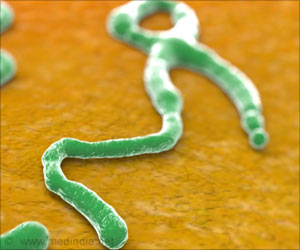
"Returning health workers who have managed to avoid infection are exceptional people who are giving to humanity," Ban said.
"They should not be subjected to restrictions that have no scientific basis. They should not be stigmatised for their selfless service."
On Friday, US nurse Kaci Hickox was isolated in a tent outside the main hospital building at Newark International Airport in New Jersey and made to wear paper scrubs.
"I feel like my basic human rights have been violated," Hickox said Saturday, insisting she had shown no symptoms and tested negative for the disease.
Officials said she was to be discharged Monday.
Advertisement
"We depend on them to fight this battle," Ban said.
Advertisement
West Africa is the epicentre of the Ebola outbreak that has claimed the lives of nearly 5,000 people.
- 'We all need to do more' -
African Union chief Nkosazana Dlamini-Zuma, who toured Ebola-hit nations last week and met Ban on Monday, called for efforts to be boosted to tackle the virus.
"Our strength is solidarity and we must therefore continue to work together," she told reporters.
"We all need to do more."
More than 10,000 people have contracted the virus in west Africa, according to the latest World Health Organization figures.
On Sunday, US ambassador to the UN Samantha Power, who is visiting the worst-affected nations of Guinea, Sierra Leone and Liberia, warned that the response to Ebola "needs to be taken to a wholly different scale than it is right now".
Several countries have imposed tough migration restrictions on visitors coming from affected nations.
But Ban called for the responses to reflect scientific advice.
"It is also clear that we need to isolate cases ?- not countries," Ban added.
"Ebola is a global problem that demands a massive and immediate global response."
Another country in west Africa, Mali, is scrambling to prevent a wider outbreak after a two-year-old girl died from an Ebola infection following a 1,000-kilometre (600-mile) bus ride from Guinea. She was Mali's first recorded case of the disease.
Ebola can fell its victims within days, causing severe fever and muscle pain, weakness, vomiting and diarrhoea. In many cases it shuts down organs and causes unstoppable bleeding.
The tropical virus is spread though close contact with the sweat, vomit, blood or other bodily fluids of an infected person. No widely-available medicine or vaccine exists.
Meanwhile, US troops returning from west Africa were being placed under isolation at a base in Italy as a preventative measure.
There are now 700 US troops in west Africa -- including nearly 600 in Liberia and 100 in Senegal -- with the force due to grow to at least 3,200 troops in coming weeks.
Source-AFP











